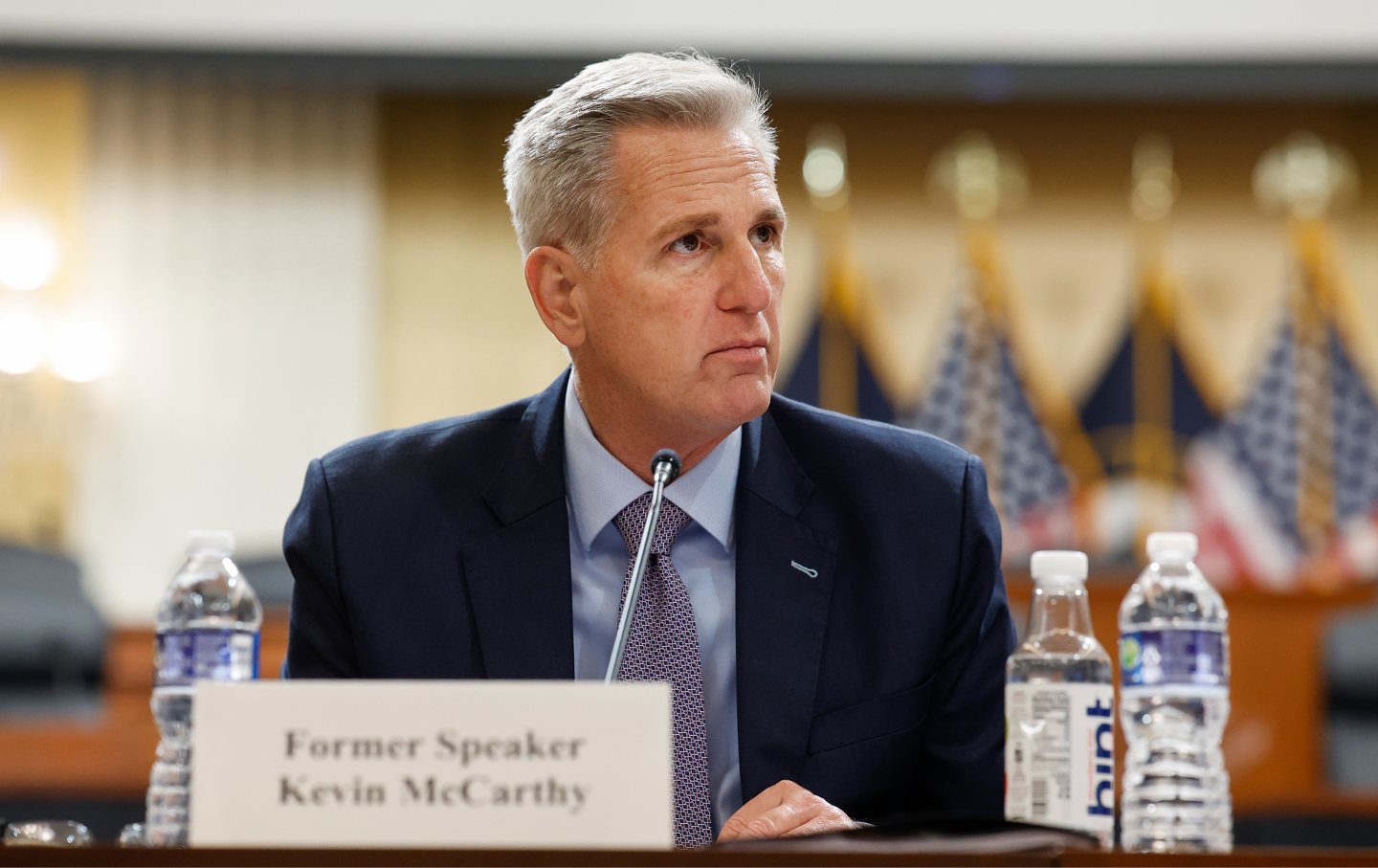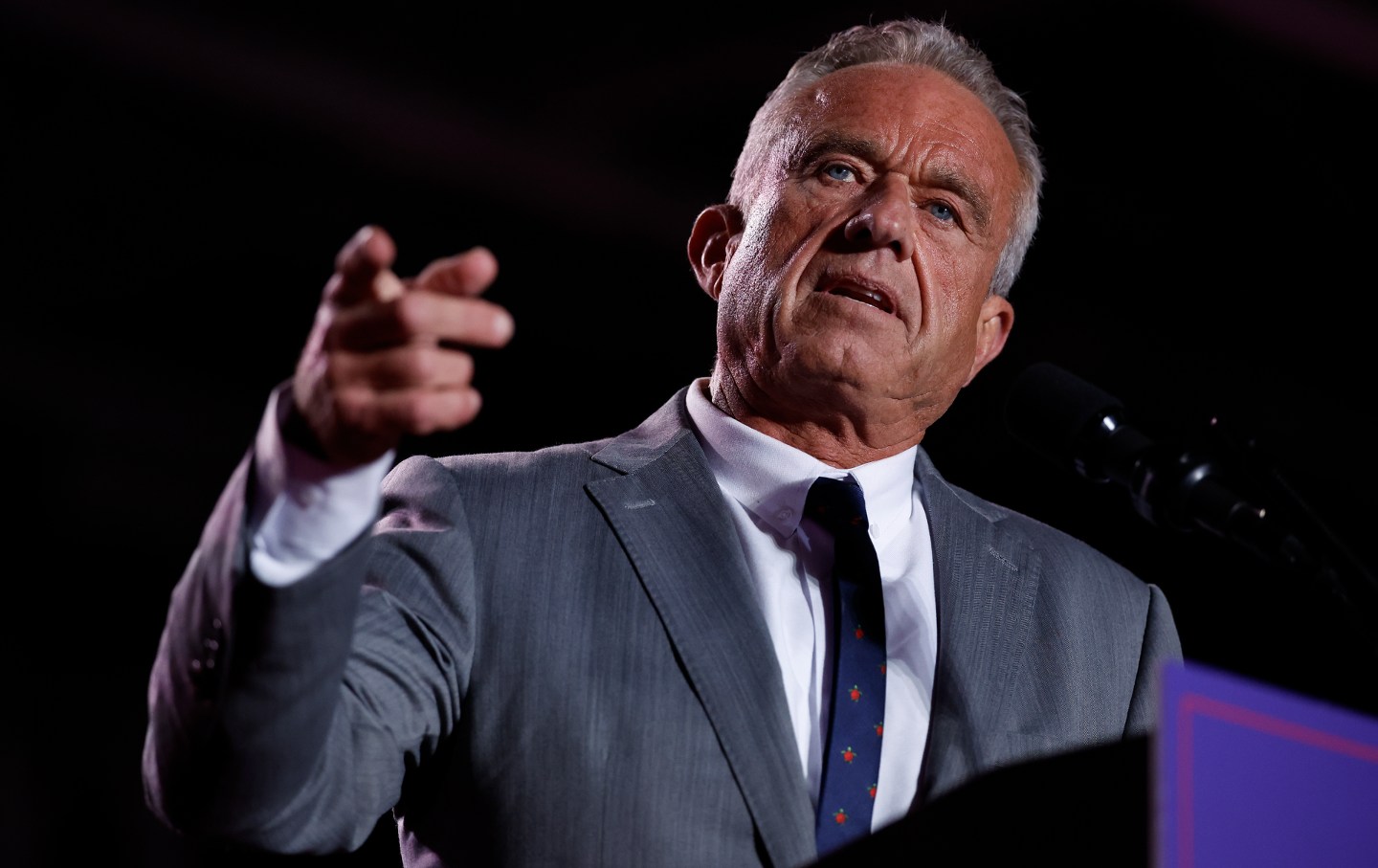Kevin McCarthy’s Empire of Lies
The former House speaker is currently spouting a wildly inaccurate take on the history of American empire.

Kevin McCarthy used his brief tenure as speaker of the US House of Representatives to wage a culture war against what he decried as “woke indoctrination in our schools.” Borrowing a page from Florida Governor Ron DeSantis and other right-wing firebrands, the Republican speaker went out of his way to attack critical race theory and the honest teaching of American history.
McCarthy is no longer second in the presidential line of succession, but the former speaker is still trying to replace facts with fantasy.
On Sunday, McCarthy posted a video of himself explaining that “in every single war that America has fought, we have never asked for land afterward—except for enough to bury the Americans who gave the ultimate sacrifice for freedom.”
A crowd of fans applauded the assertion, which undoubtedly fit their right-wing worldview. The problem, of course, was that they were applauding a claim that—even by the diminished standards for veracity associated with House Republicans—was wildly inaccurate.
The United States, which took its current form via a “westward expansion” that displaced native peoples from coast to coast, has a very long record of making postwar land claims. The Revolutionary War was settled with the 1783 Treaty of Paris in which, according to the US Department of State, the United States “succeeded in obtaining Newfoundland fishing rights [and] a western border that extended to the Mississippi River with rights of navigation.” Ensuing centuries would see the US take control of Puerto Rico, Guam, and, for a time, the Philippines.
But the war-related land claim that McCarthy should be most familiar with is closer to home. The House district he represents is in California, a state that was a part of Mexico until the US invaded and took it.
The US-Mexico War of the mid-1840s, which was launched amid a barrage of lies from President James K. Polk, ultimately seized a vast stretch of northern Mexico in an imperialist land grab so blatant that abolitionist William Lloyd Garrison said “every lover of Freedom and humanity” should oppose it. Among the many critics of the war was a one-term US representative from Illinois named Abraham Lincoln, who with other members of the former Whig Party decried it as a crude scheme by Polk—a Tennessean who has been aptly described by the White House Historical Association as “a profit-hungry slave owner”—to expand slavery into newly conquered territories. Henry Clay, one of McCarthy’s predecessors as speaker of the House, declared, “This is not a war of defense, but one of unnecessary and offensive aggression.” A US Army lieutenant in the war, Ulysses S. Grant, would observe years after its conclusion that, “For myself, I was bitterly opposed to the measure, and to this day regard the war, which resulted, as one of the most unjust ever waged by a stronger against a weaker nation.”
A young writer from Concord, Mass., was so horrified by the invasion of Mexico that he refused to pay war taxes. After being arrested and jailed for his protest, Henry David Thoreau wrote “Civil Disobedience,” the broadly influential essay in which he declared that “when a sixth of the population of a nation, which has undertaken to be the refuge of liberty, are slaves, and a whole country [Mexico] is unjustly overrun and conquered by a foreign army, and subjected to military law, I think that it is not too soon for honest men to rebel and revolutionize.”
McCarthy may not have read Thoreau quite as closely as did Mahatma Gandhi or the Rev. Martin Luther King Jr. But he might at least have recognized that, in the Golden State’s Kern County, which he has represented for decades in the state legislature and the US Congress, President Polk’s war of conquest made vast swaths of land that had been on the northern cusp of Mexico—including Ranchos Los Alamos Y Agua Caliente, Rancho El Tejon, and Rancho Castac —a part of the new American state of California.
But, of course, he didn’t. That has inspired a flurry of offers from American historians who are prepared to give him a refresher course, including Columbia University professor Karl Jacoby, who said Monday, “Wanted to thank ex-speaker McCarthy for reassuring me that Americans needs my forthcoming book on the U.S.-México War.”
We cannot back down
We now confront a second Trump presidency.
There’s not a moment to lose. We must harness our fears, our grief, and yes, our anger, to resist the dangerous policies Donald Trump will unleash on our country. We rededicate ourselves to our role as journalists and writers of principle and conscience.
Today, we also steel ourselves for the fight ahead. It will demand a fearless spirit, an informed mind, wise analysis, and humane resistance. We face the enactment of Project 2025, a far-right supreme court, political authoritarianism, increasing inequality and record homelessness, a looming climate crisis, and conflicts abroad. The Nation will expose and propose, nurture investigative reporting, and stand together as a community to keep hope and possibility alive. The Nation’s work will continue—as it has in good and not-so-good times—to develop alternative ideas and visions, to deepen our mission of truth-telling and deep reporting, and to further solidarity in a nation divided.
Armed with a remarkable 160 years of bold, independent journalism, our mandate today remains the same as when abolitionists first founded The Nation—to uphold the principles of democracy and freedom, serve as a beacon through the darkest days of resistance, and to envision and struggle for a brighter future.
The day is dark, the forces arrayed are tenacious, but as the late Nation editorial board member Toni Morrison wrote “No! This is precisely the time when artists go to work. There is no time for despair, no place for self-pity, no need for silence, no room for fear. We speak, we write, we do language. That is how civilizations heal.”
I urge you to stand with The Nation and donate today.
Onwards,
Katrina vanden Heuvel
Editorial Director and Publisher, The Nation








